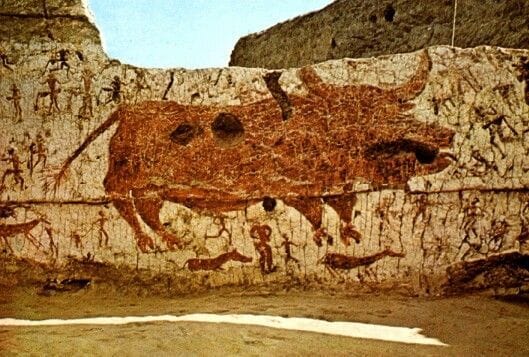I Think You Should Read: The Patriarchs (Angela Saini, 2023)
Digging through the foundations of patriarchy and finding treasure buried underneath.

“We live in capitalism. Its power seems inescapable,” Ursula K. LeGuin said, quite famously. “So did the divine right of kings.”
This quote has always felt a little odd to me — not because it’s wrong, necessarily, but because capitalism, of all the oppressive systems we live within, is the most obviously artificial. There are no pseudo-sciences arguing that capitalism is “natural,” the way that phrenology and evolutionary psychology have been used to justify our current systems of race and gender. Capitalism has a history — we can point to a time before it existed, which makes it easier to imagine a time after it ends. There are capitalist nations and not-so-capitalist nations; we know that capitalism occupies limited and specific territories, and that it’s not how every society is “naturally” organized.
Capitalism, in other words, seems pretty escapable. All you have to do is move, or stage a revolution. The thing we’ve really had trouble shaking is that “divine right of kings” — and male Presidents, who are like kings, and male CEOs, who are also like kings, and the male fathers who are supposedly the kings and presidents and CEOs of the nuclear family. Patriarchy, the rule of the fathers, feels truly inescapable, not least because we’re told that the world has always been patriarchal, and that it’s the naked state of the human animal; patriarchy is what seems to disprove LeGuin’s point that “any human power can be resisted and changed by human beings.”
Patriarchy isn’t any more permanent or “natural” than capitalism or white supremacy, and I know that. I had a hard time really believing it, though, until I read Angela Saini’s The Patriarchs, a history of patriarchy that I expect to be peppering everyone with tidbits from until the fall of capitalism, or until I die, whichever comes first.